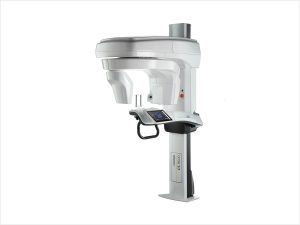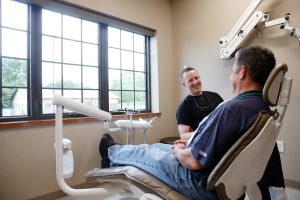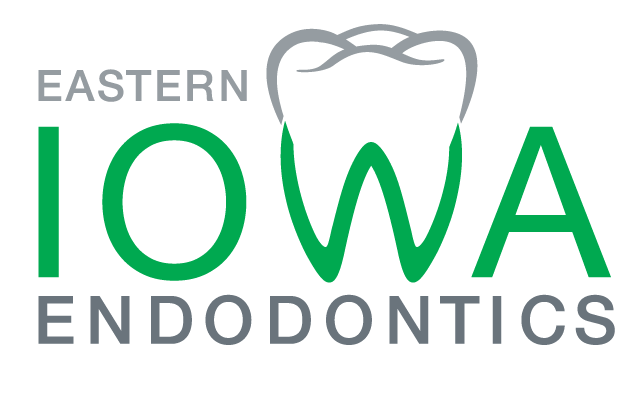Advanced Endodontic Technology for Endodontic Therapy
At Eastern Iowa Endodontics in Cedar Rapids, IA, Dr. Derek Peek utilizes advanced dental diagnostics with routine CBCT scans.
CBCTs aren’t your run-of-the-mill dental imaging. They construct a 3D view of your teeth and associated dental structures. At Eastern Iowa Endodontics, this technology isn’t just a tool; it’s a commitment to endodontic diagnosis for precise patient-centric care. Call (319) 382-8002 to learn more.
Unveiling the Power of Precision with the CS 9600

Beyond Traditional X-rays: Unveiling the 3D World of CBCT
CBCT, or Cone Beam Computed Tomography, stands at the forefront of dental imaging. Unlike flat, two-dimensional X-rays, CBCT scans utilize a cone-shaped X-ray beam to capture multiple images from various angles. These images are then reconstructed digitally to create a detailed 3D model, offering a comprehensive and unparalleled view of your teeth, jawbone, nerves, and other associated structures.
Why Choose the CS 9600? Unveiling Unmatched Capabilities
While Eastern Iowa Endodontics has always been equipped with CBCT technology, our recent upgrade to the CS 9600 by Carestream represents a significant leap forward in diagnostic capabilities. Here’s how the CS 9600 sets itself apart:
- Enhanced Image Quality: The CS 9600 boasts superior resolution, producing sharper and more detailed 3D images. This allows Dr. Peek to visualize even the most intricate anatomical features with exceptional clarity, ensuring a more precise diagnosis.
- Reduced Radiation Exposure: The CS 9600 prioritizes patient safety by delivering lower radiation doses compared to previous CBCT models. This advancement minimizes radiation exposure while maintaining the high-quality images crucial for accurate diagnosis.
- Faster Scan Times: The CS 9600 offers improved scan speed, capturing detailed 3D images in a matter of seconds. This translates to a more comfortable experience for patients and increased efficiency within the practice.
- Expanded Field of View: The CS 9600 provides a wider field of view compared to older models. This expanded view allows Dr. Peek to assess not only the tooth itself but also the surrounding structures in greater detail, aiding in treatment planning for complex cases.
The Benefits of CBCT Technology in Endodontics

- Precision in Diagnosis: The 3D visualization allows for a more accurate diagnosis of complex dental issues, such as hidden canals, root fractures, and unusual anatomy.
- Enhanced Treatment Planning: With a detailed 3D map, Dr. Peek can meticulously plan root canal procedures, ensuring optimal outcomes and minimizing the risk of complications.
- Improved Patient Communication: The 3D visuals from CBCT scans empower Dr. Peek to explain dental conditions clearly to patients, fostering better understanding and informed decision-making regarding treatment options.
How Does CBCT Technology Work?
CBCTs operate on a principle similar to traditional CT scans but with a specialized focus on dental imaging. Here’s a simplified breakdown of its functionality:
- X-ray Emission: The CBCT machine emits a cone-shaped X-ray beam that rotates around the patient’s head.
- Image Capturing: As the X-ray beam rotates, it captures multiple images from different angles. These images are then compiled by computer software to create a 3D representation of the scanned area.
- Digital Reconstruction: Advanced software processes the captured images to reconstruct a detailed 3D model. This model provides a comprehensive view of the dental structures, aiding in diagnosis and treatment planning.
Why Choose Dr. Peek for Endodontic Treatment?
When considering endodontic treatment, Dr. Derek Peek is an exemplary choice, offering a blend of expertise, compassion, and dedication to patient care.
- Board-Certified Expertise: Dr. Peek’s credentials speak volumes about his skill. As a Board-Certified endodontist with specialized training in root canal anatomy and microsurgical procedures, he brings knowledge and precision to each case.
- Educational Background: Dr. Peek’s educational journey reflects his commitment to excellence. After graduating from the University of Oklahoma College of Dentistry and pursuing further training at the Louisiana State University School of Dentistry for his endodontic residency, he obtained not just an Endodontic Certificate but also a Master of Science degree.
- Professional Affiliations: His active involvement in esteemed organizations like the American Board of Endodontics (ABE), American Association of Endodontics (AAE), American Dental Association (ADA), and Iowa Dental Association (IDA) showcases his commitment to staying at the forefront of advancements in the field.
- Clinical Excellence: Serving as a staff clinician at UnityPoint Health, Dr. Peek demonstrates his versatility and commitment to patient care, even treating patients in the operating room when necessary. Additionally, his role as a Gratis faculty member for the LSU Endodontic Program highlights his passion for sharing knowledge and advancing the field.
Frequently Asked Questions
Are CBCT scans required for a root canal treatment?
No, CBCT scans aren’t always mandatory for a root canal procedure. These scans are typically recommended when Dr. Peek needs a more detailed and comprehensive view of your tooth anatomy or to identify complexities that might not be visible on traditional X-rays. While not always required, Dr. Peek routinely utilizes CBCT scans in his practice due to the significant benefits they offer patients.
Are CBCT scans safe?
Yes, CBCT scans are considered a safe and effective diagnostic tool. The radiation exposure associated with CBCT scans is significantly lower compared to traditional CT scans. Dr. Peek and his team prioritize patient safety and will only recommend a CBCT scan when the potential benefits outweigh any minimal risks.
Are CBCT scans painful?
No, CBCT scans are painless procedures. The actual scan takes only a few seconds, and the machine does not come into contact with your body. You may be positioned in a special chair and might need to hold still for a brief moment during the scan.
Does insurance cover the cost of CBCT scans?
Insurance coverage for CBCT scans can vary depending on your specific plan. Our team at Eastern Iowa Endodontics is happy to assist you in verifying your coverage and understanding any associated costs. We recommend contacting your insurance provider directly to determine your specific coverage details.
Enhance Your Endodontic Treatment with State-of-the-Art Technology
CBCT Technology represents the pinnacle of dental innovation and expertise. As advancements continue to unfold, the future holds even more promise for precise diagnostics and transformative dental treatments. To learn how CBCT scans can revolutionize your endodontic treatment, call our Cedar Rapids, IA, office at (319) 382-8002 to schedule a consultation.


